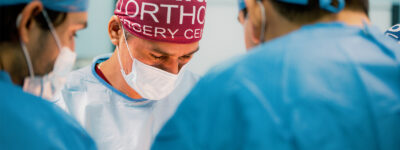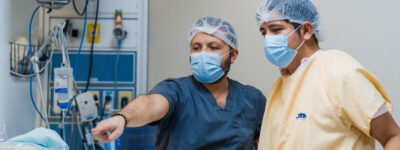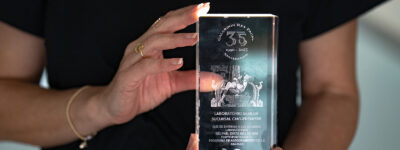Keep your Teeth Healthy with these Tips from our Dentist
Getting healthy teeth can take more time than you think. Even if you already have impeccably healthy teeth, you probably take special care that goes beyond just brushing them constantly. Here are ten tips from our specialist in dentistry, Dr. Adrian Malja, who shares with us what is an appropriate oral care, which products we should use, and which habits we must adapt to always have clean teeth.
Do not Fall Asleep without Brushing your Teeth
It is no secret that the general recommendation for optimal oral cleaning is brushing your teeth at least three times a day. However, many of us continue to neglect to brush our teeth at night. Keep in mind that when we brush our teeth at bedtime, it eliminates germs and plaque that accumulates throughout the day. Brushing your teeth at night is crucial to oral hygiene.
Brush Correctly
Similarly, the way we brush our teeth is important. In fact, improper brushing is equivalent to not brushing your teeth. Take your time; remember to brush gently and in a circular motion throughout the teeth to remove the accumulated plaque. If you don’t brush correctly, plaque can harden and cause damage to the gums.
Do not Forget the Tongue
Plaque can also develop on the tongue and cause bad breath, and it could even turn into oral complication in the future. At the same time that you are brushing your teeth, carefully move the tongue and brush with outward movements.

Use Toothpaste with Fluoride
When talking about toothpastes, there are more important elements to consider than those that promise a whitening in fifteen days, or the best mint flavor, or sensitivity. Fluoride is an essential substance in oral health, and it is a leading defense against tooth decay. How does it work? Its job is to fight the germs that can cause cavities, in addition to provide a protective barrier for the teeth.
Flossing is Just as Important as Brushing
Flossing can be tricky, especially for small children and older adults. Nonetheless, flossing (at least once a day), does more than just removing pieces of food between the teeth. It is an effective way to stimulate the gums, reduce plaque, and decrease area inflammation.
Mouthwash: To Use or Not to Use?
Many people skip this step since they do not know the way mouthwash works. However, mouth rinses are useful to reduce the amount of acid in your mouth, clean the gums and areas that are difficult to brush, and remineralize the teeth. Remember that not all mouthwash is made the same. There are special ones for children and for people who suffer from tooth sensitivity. Ideally, your dentist will recommend one that can be used for your particular case.
Drink more Water
Water is definitely the most important beverage in order to enjoy excellent overall health (including oral health). Drinking a glass of water after each meal can eliminate the negative effects of food acids on the teeth.
Limit Your Consumption of Sugars and Acids
Sugar becomes acidic when it comes in contact with the mouth, which damages the enamel of the teeth. These acids can lead to the presence of cavities. Limit your consumption of acidic fruits, teas, and coffee, as they can also wear out the tooth enamel.
Visit your Dentist at Least Twice a Year
Daily habits are crucial for oral health in general. But even if you brush properly and floss, it is highly recommended that you visit your dentist regularly. Even if you don’t suffer from a condition, go for a dental cleaning and an annual check-up. Receiving a professional opinion of your teeth is effective for detecting, treating, and solving any kind of oral issue that may arise.
To make an appointment with our dentistry specialist, Dr. Adrian Malja, call 01 329 298 0717 and schedule your appointment.




